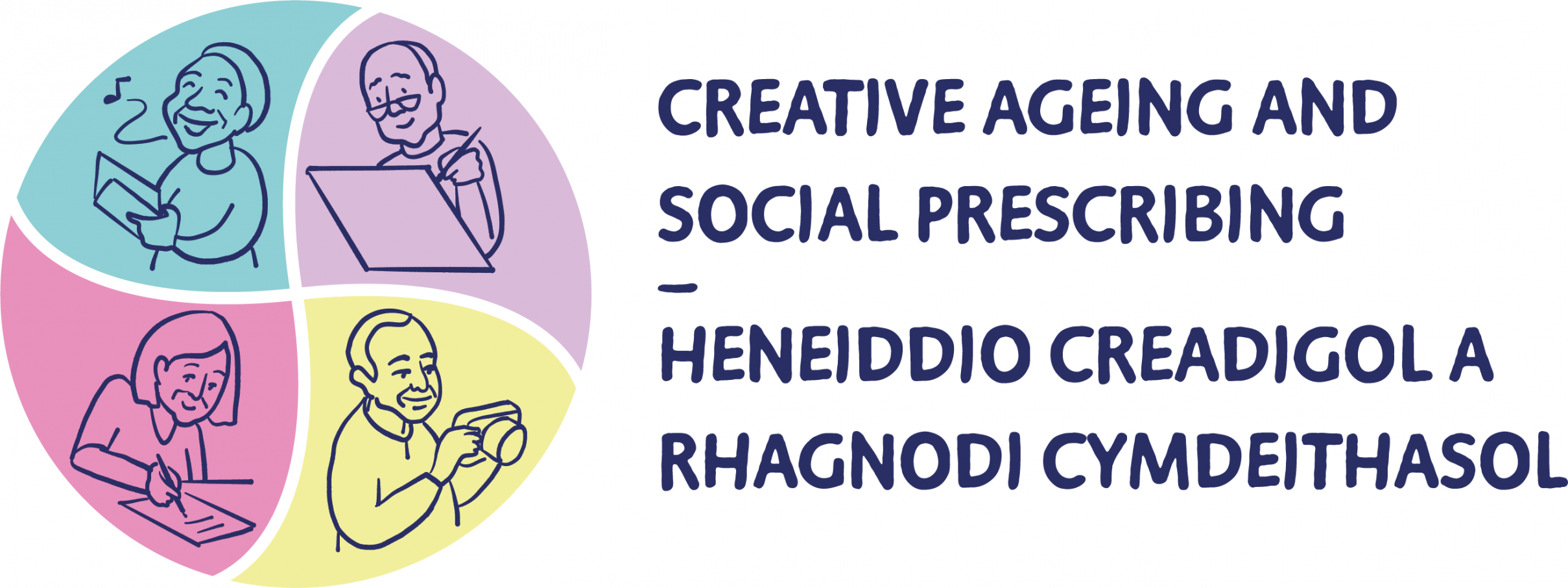British Academy Innovation Fellowship looked at creative ageing and social prescribing in Wales
28 May 2022
The British Academy Innovation Fellowship scheme is designed to enable researchers in the humanities and social sciences to partner with organisations and business in the creative and cultural, public, private and policy sectors in order to address challenges that require innovative approaches and solutions. It allows an established researcher to work with a UK-based partner organisation on a specified policy or societal challenge that contributes to the aims of the scheme for a period of up to one year. Sofia’s project, Creative ageing and social prescribing: Bridging the gap between diverse service users, service providers and policy makers in Wales, was carried out partnership with The Arts Council for Wales.
Social prescribing is a non-pharmacological approach to supporting people’s health and wellbeing through referrals to meaningful activity such as the arts. In the UK it is a key policy area linked to the personalised healthcare agenda which aims to cut the booming cost of an ageing population. The applications of ‘arts on prescription’ are complex and often exclusive of the communities that need interventions the most. Particularly, when engaging older adults with experiences of social isolation and/or dementia, there are barriers such as digital literacy, access to devices, capacity to consent, cultural and aesthetic preferences. Creative practitioners and service users hold most of the information on impact – it’s a predominantly oral, experiential and private body of knowledge. Ethnographic and participatory approaches are therefore highly suited to document and translate this knowledge to policy makers. This will contribute to cost-effective solutions tailored to the specialised needs of our ageing population.
“My aim with this fellowship is to dwell hyper-locally and then connect to leaders in health and social care and national bodies involved in policy making. I believe that bringing together communities of artists and people with lived experiences will help with their learning and understanding of social prescribing from the bottom up. I envisage that this knowledge brokering exercise will have a long-lasting impact, on individual and collective understanding and contribute to structural change in the way social prescribing is legislated, organised and delivered. This will help support public services involved in social prescribing to innovate and develop new ways to address the health and wellbeing of our ever-increasing ageing population which has unique access needs, particularly regarding cultural preferences and technology.”
The connections and pathways to social prescribing are not always clear among community arts and arts and health projects. As social prescribing is becoming an increasingly important area for policy making, this project will provide the time required to engage the arts sector, and particularly those who do not readily identify as part of the delivery of social prescribing activity. Furthermore, Equality, Diversity and Inclusion is at the core of the Arts Council Wales’ work and reflected in its board and calls for funding. Arts Council Wales has a long-lasting commitment to arts and health. Portfolio manager, Sally Lewis worked as the key partner in exploring further the social prescribing policy implications of the research.
The anticipated benefits are:
- Better informed policy makers in Welsh Government
- New arts and health funding practices by Arts Council Wales and the NHS
- More culturally-engaged older population
- Less burnout among creative professionals engaged in SP
- Better informed NHS managers, ward managers and clinicians about the cost and impact of organising creative activities for specific patient and carer populations within clinical settings
In addition to the Arts Council Wales, Sofia worked with the following key collaborators:
- Johan Skre (Arts on Prescription), Iori Haugen (Music in Hospitals & Choirs for Good), Suzy West (Impelo), Kate Strudwick (Head4Arts) and Sarah Teagle (Forget-me-Not Chorus) were part of the social prescribing community engagement phase and took part in interviews, focus groups, co-design sessions and promote research involvement to their organisation’s service users.
- Martin Griffiths (British Deaf Association), Amal Beyrouty (Women Connect First), Fadhili Magiya & Sarra Ibrahim (Sub Saharan Advisory Panel), Rachel Stelmach and Sara Beer (Disability Arts Cymru), Cath Harrison (Pride Cymru) and the South Wales Gay Men’s Chorus were part of the social prescribing community engagement phase and took part in interviews, focus groups, co-design sessions and promote research involvement to their organisation’s service users.
- Juls Benson (Reality Theatre) produced a research-based performance adapted to a short film.
